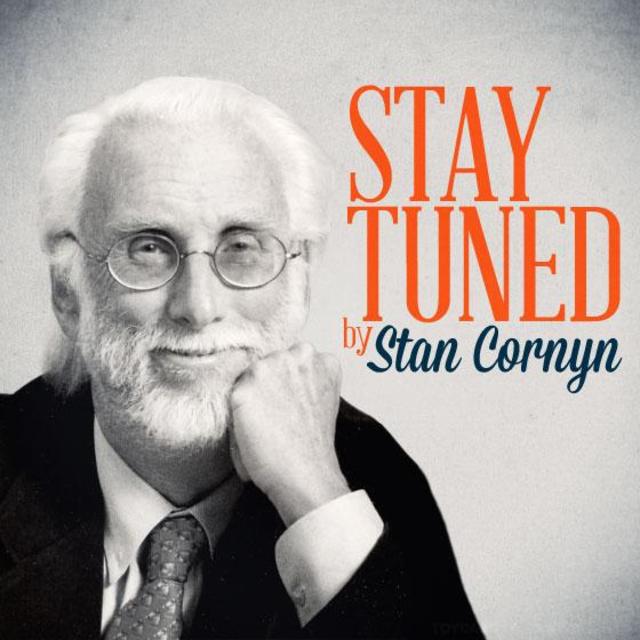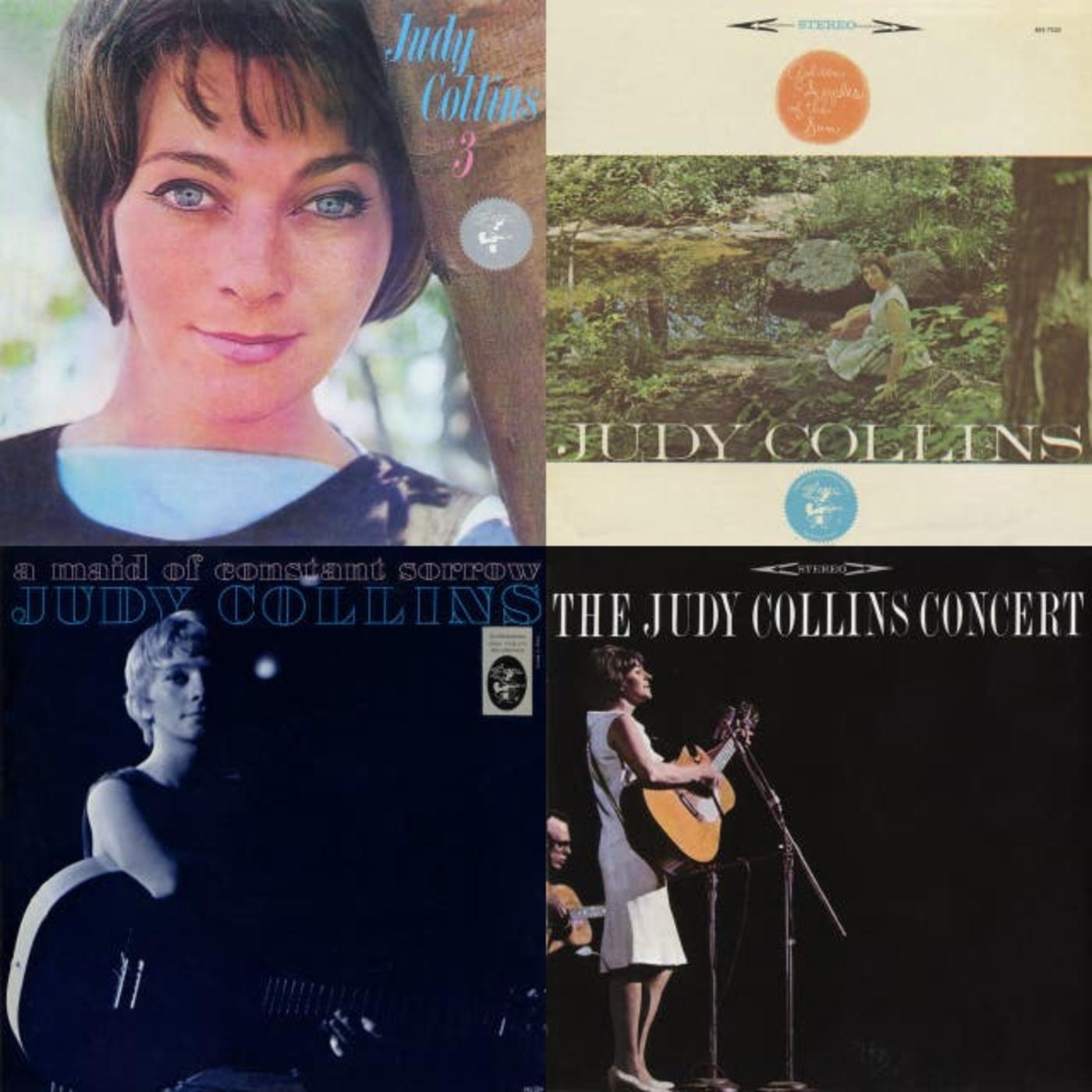Stay Tuned By Stan Cornyn: Judy Collins

Every Tuesday and Thursday, former Warner Bros. Records executive and industry insider Stan Cornyn ruminates on the past, present, and future of the music business.
Finding the song has been her magic.
She has found the memorable songs: from those expressing deep faith (“Amazing Grace”) to final hope (“Send in the Clowns”). We should learn from her, learn more than how to sing a hit, but how to embrace a hit.
1961 - 1966
Judy Collins had already found her record label: Elektra Records had signed her up when she was 22, living in Greenwich Village, playing its clubs whenever they’d give her and her guitar the nod.
(She remained with that same label, Elektra, for 35 years, which must be some kind of world record in fidelity.)
Her first recordings were folk – voice and guitar – often by writers with something to protest via verse-and-chorus. She sang her versions of those mantras, from Bob Dylan’s “Mr. Tambourine Man” to Pete Seeger’s “Turn! Turn! Turn!”
Elektra was pleased with her early albums; they sounded good and sold fair. But her taste in authors was clear: singer-songwriters who performed their own songs, like Joni Mitchell and Canadian poet Leonard Cohen. And liked it when Judy recorded them, too.
After her first five years at Elektra, in 1966 she enlarged her scope, adding full orchestration to some of her recordings. This was a stunning move for a truly true folk singer. But having made the move, finally Judy Collins found her audience. She did it in her album named In My Life.
Hear the original “Hard Lovin’ Loser” from In My Life:
1967: Both Sides Now
This next album was and still is named Wildflowers. The album was produced by Mark Abramson, arranged by Joshua Rifkin. The major breakthrough came from Joni Mitchell’s song “Both Sides Now.” Joni, not yet a star, had sung her new song to Judy over the phone. Judy put down her phone and wept.
Judy recorded it, and it won her a Grammy, and went to #8 on the Billboard chart. For Judy Collins, no longer was her performing life Greenwich Village with six people in her audience.
Bows and flows of angel hair and ice cream castles in the air
And feather canyons everywhere, I've looked at clouds that way
But now they only block the sun they rain and snow on everyone
So many things I would have done, but clouds got in my way
I've looked at clouds from both sides now
From up and down and still somehow
It's cloud's illusions I recall
I really don't know clouds at all
Hear Judy's version of "Both Sides Now":
1968
Next came Judy’s 1968 Elektra album, which went up to #29 on the Billboard albums chart:
The orchestration for this album, Who Knows Where the Time Goes, had a commercial mellow-ness to it: country-artsy sound. Even had Stephen Stills on guitar. For tunes, it again reached out, including to poet Leonard Cohen, and his duly beloved “Bird on the Wire.”
Catch “Bird on the Wire” performed by Judy Collins:
Judy Collins was now “important,” record-business-wise. She rated being backed by back-up electric guitars in a new group with her two-years-now boyfriend Stephen Stills.
They were about to break up, Judy and Stephen. He wrote about Judy’s remarkable eyes. He and Judy had lived together, then found, as he put it, “they were both too large for one house.”
Judy had fallen in another love, with actor Stacy Keach, with whom she was about to have a five-year affair, and she was leaving Stephen. Stills hated her leaving him. Stills composed “Suite: Judy Blue Eyes” for his NEW group, Crosby, Stills, and Nash. He wrote about his feelings.
Judy recalled how Stephen “came to where I was singing one night on the West Coast and brought his guitar to the hotel and he sang me 'Suite: Judy Blue Eyes,' the whole song. And of course it has lines in it that referred to my therapy. And so he wove that all together in this magnificent creation. So the legacy of our relationship is certainly in that song."v
Who Knows Where the Time Goes had several memorable songs,
The lasting-for-years “Someday Soon” by Ian Tyson. A second Leonard Cohen song: “Story of Isaac.” And Judy’s own touching (if fictional) “My Father.”
My father always promised us
That we would live in France
We'd go boating on the Seine
And I would learn to dance
We lived in Ohio then
He worked in the mines
On his dreams like boats
We knew we would sail in time
All my sisters soon were gone
To Denver and Cheyenne
Marrying their grownup dreams
The lilacs and the man
I stayed behind the youngest still
Only danced alone
The colors of my father's dreams
Faded without a sound
1969: Recollections
By 1969, her next album, Recollections, starred Pete Seeger’s “Turn! Turn! Turn! To Everything There Is a Season.” But the hit version of this often-recorded interpretation of The Book of Ecclesiastes, had already been recorded by The Byrds.
In Recollections, Judy moved back to the Village days: and to her folk friends’ works. Bob Dylan, Pete Seeger, those. But with this album she aimed their works at the pop audience she’d won over, with bigger orchestrations and the like.
Elektra was torn over this album, market-wise. The label had come from folk in the Village, but the label’s sales guys didn’t mind selling bigger to those uptown kids who bought pop.
Oldies in Recollections sold decently: “Mr. Tambourine Man” and the like.
But for Judy, the future still lay straight ahead. She had come up with two Judys. The public knew one: the glamour girl, larger than life, intimate of voice, an on stage personality the public loved. She practiced how to be that public idol with the amethyst eyes: a flower child.
But she still, inside, there was the other Judy, the street chick. She’d attempted suicide at 14, dropped acid with Michelle Phillips of the Mamas and Papas, had affairs with famous performers.
For the rest of her life, she’s lead those two lives.
1970: Amazing Grace
She continued to choose songs to record extremely well. Perhaps it was those blue eyes. But at Elektra, she was not able to choose her album’s title or photo. The star of this next album, and maybe of her whole career, was her recording of “Amazing Grace.”
Hear her original 1970-version of “Amazing Grace,”:
In 1970, Judy Collins had set her heart on an ancient, Christian hymn: “Amazing Grace” in her album called Whales & Nightingales. She was now “an art singer.” Who could put out an album with a Whale title and have it go to #17 on Billboard’s Pop Albums chart.
And about that fishy title for her “Amazing Grace” album? In addition to her Top 40 “Grace” song, the album included Judy singing an early-1850s (folk) song, “Farewell to Tarwathie,” in which she sings accompaniment to humpback whales. (See why I keep asking you to “Stay Tuned”?)
Experience Judy with whales:
Farewell to Tarwathie
Adieu Mormond Hill
And the dear land of Crimmond
I bid you farewell
v I'm bound off for Greenland
And ready to sail
In hopes to find riches
In hunting the whale
Farewell to my comrades
For a while we must part
And likewise the dear lass
Who first won my heart
The cold coast of Greenland
My love will not chill
And the longer my absence
More loving she'll feel
Elektra/Asylum
Five years move by (1970-75), and the management of her record label changes hands. In 1972, David Geffen merged Elektra with his Asylum label. Then, in 1975, Geffen retired and Warner Bros.Records’ Joe Smith moved in to take over Elektra/Asylum.
(Through these management shifts, Judy lasted and, more and more, got her way: in 1979, she wanted to pose in the nude for her next album, Hard Times for Lovers. The photographer would be the distinguished NYer: Francesco Scavullo. Joe Smith made sure cropping took place.)
Through all this, Judy had not only Scavullo but also all of Broadway and the world to choose from, and she did, with composer Stephen Sondheim.
(Side note: Jump 20 years here: In her 1997 “Forever” album for Elektra, she poses nude on the cover once more. Arms crossed, but she again got her way, along with 31 of her most famous performances. Now, jump back.)
1975: Send in the Clowns
Like “Amazing Grace,” “Send in the Clowns” charted big for her who-needs-a-last-name album Judith. The album was produced by Arif Mardin, a veteran NY producer from the “old” Atlantic era.
In fact, Elektra’s “Clowns” charted twice, in 1975 (#36 tops during its 11 weeks on the Billboard Pop Albums chart) and again 1977 (#19 while on the charts for another 16 weeks).
The Stephen Sondheim song from his musical A Little Night Music reflects how disappointing life can be, and what in the end, you should do if you’re losing. If it’s a circus you’re in, and it’s not going well, then “send in the clowns.”
Don't you love farce?
My fault, I fear.
I thought that you'd want what I want...
Sorry, my dear!
And where are the clowns
Send in the clowns
Don't bother, they're here.
Isn't it rich?
Isn't it queer?
Losing my timing this late in my career.
And where are the clowns?
There ought to be clowns...
Well, maybe next year.
At the Grammy Awards of 1976, following Judy Collins’ performance of this heart-breaker, “Clowns” was named "Song of the Year.”
“Clowns” was for Judy a major hit, and maybe her last chart hit. Or maybe not.
As it says in “Clowns” … “well, maybe next year.”
Thereafter...
More albums would come from Judy, but not with big hits.
Home Again was released in 1984 by Elektra/Asylum Records. On the title track, Collins was joined by T.G. Sheppard. “Home Again” reached No. 57 on the Billboard Hot Country Singles & Tracks charts.
Not a biggy.
This would turn out to be Judy Collins’ last new album for Elektra.
Her 35 years on Elektra were now over. Well done, but Elektra had given up on the previous generation’s music makers. Labels are like that.
It’s now decades later. Judy Collins’ voice remains even better these days: richer in timbre, stronger. Pure soprano. As the New York Times wrote on Judy’s 71st birthday, Her voice “is still an instrument that evokes angelic visions in an imaginary cathedral or a shaft of moonlight settling on a lake whose waters are barely quivering.”
Judy Collins’ other life, off-Elektra, has remained filled with films, book writing, acting, and recording elsewhere.
And also, presumably, filled with clowns.
-- Stay Tuned

